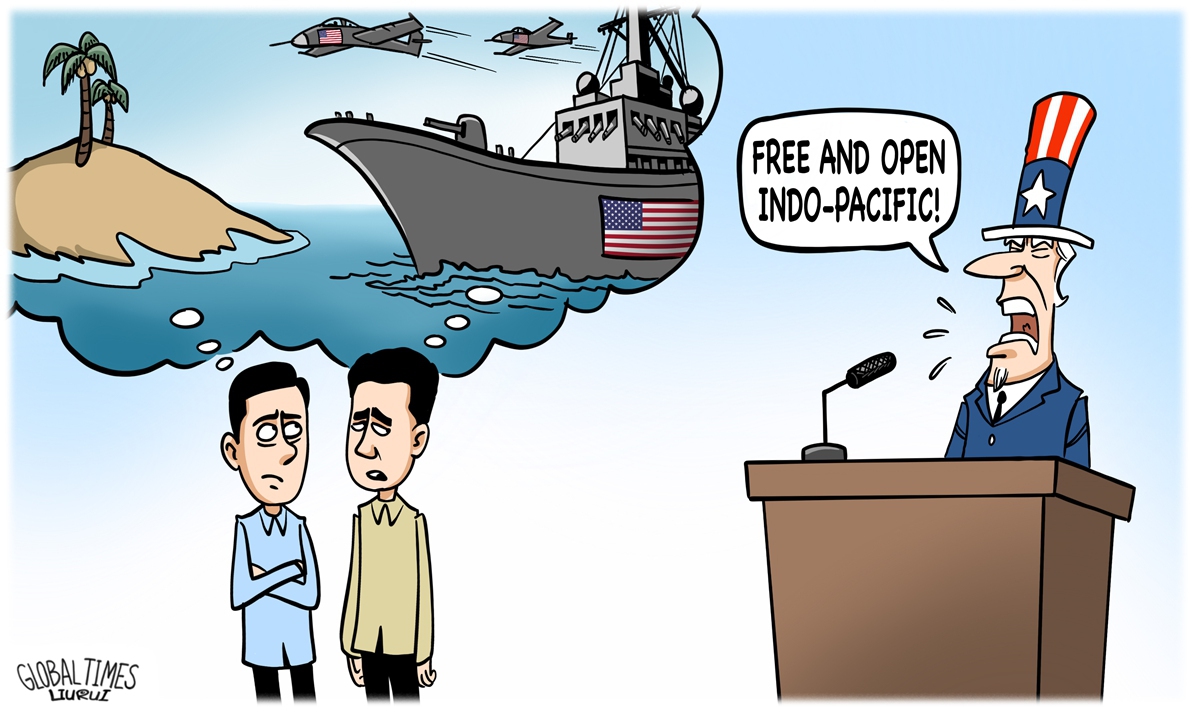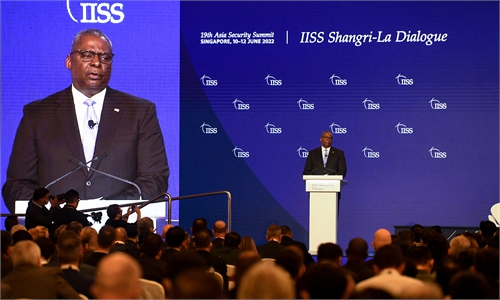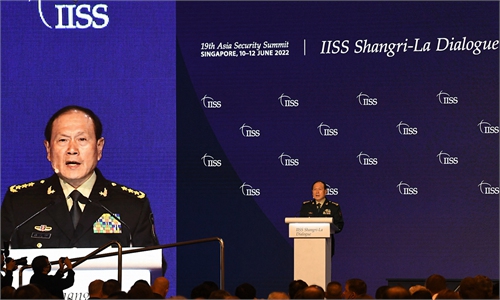
Indo-Pacific Illustration: Liu Rui/GT
Defense chiefs from 26 countries across the Indo-Pacific gathered for a three-day meeting in Sydney this week in an attempt to deal with the so-called "China's ongoing campaign to expand its influence and military presence in the region."
General Mark Milley, chairman of the US Joint Chiefs of Staff, said the military leaders were focused on "the whole situation with the rise of China, a free and open Pacific" and ensuring a peaceful and stable Indo-Pacific region.
In May, US President Joe Biden launched the Indo-Pacific Economic Framework for Prosperity during his visit in Japan, giving the Strategy an economic push. Senior US officials have also intensively made visits to Indo-pacific countries since this year as political and diplomatic maneuvers.
Sun Xihui, an associate research fellow with the National Institute of International Strategy at the Chinese Academy of Social Sciences, told the Global Times that this meeting is part of the US efforts to push forward its Indo-Pacific Strategy in the military domain. It took place when the 2022 Rim of the Pacific exercise is underway.
In Australia, Milley repeated clichés that China has become more aggressive and wants to bully and dominate the Indo-Pacific region as opposed to having a free and open Indo-Pacific. But the US is measuring China's corn by its own bushel. It is the US that views leadership and dominance as a priority of its foreign policy.
The so-called free and open Indo-Pacific is nothing but the US' values-based rhetoric with an attempt to discredit China. With such rhetoric, the US tries to rope in the so-called like-minded nations to make China a common enemy so that it can enlarge its own friends circle while at the same time isolating China.
It is clear that the US tries to turn the Indo-Pacific into a stepping stone of its containment of China. It touts freedom and openness, but it makes the region narrow-minded and exclusive. It catalyzes every potential dispute so as to deeply get involved in the region and deepen regional countries' dependence on it. To regional countries, the US is more like a toxicant than an antidote.
Sun said that the US wants to create a belief that it has many friends and partners in the Indo-Pacific. Nonetheless, most countries in the region have no will to engage in a military confrontation with China. The more countries the US ropes in, the more different interests are involved. It will be difficult for the US to coordinate all these interests together to confront China.
The US attaches a great deal of importance to its leadership in global and regional security. But it is the US itself that always puts global and regional security in peril. In the Indo-Pacific, the US relies on a security framework built on its alliance system. Based on its alliance system, it hopes to expand the framework, with itself as the core and at the top, its allies at the second level and partners at the third. By playing up the "China threat", the US is excluding China from this framework.
But it needs to be stressed that a security framework in the Indo-Pacific without China will not work. In the region, despite large US deployments, no military conflict breaks out. But in Europe, where the US deploys fewer forces especially fewer naval forces, crisis management and control in Europe has almost lost control, with the ongoing Russia-Ukraine conflict and the risk of a confrontation between the US and Russia.
Song Zhongping, a Chinese military expert and TV commentator, told the Global Times that it is due to the fact that China and the US have managed and controlled these crises, especially China's proper handling of its relations with the US and other regional countries. However, if the US keeps provoking China over China's sovereignty, security and development interests, a crisis may occur.
Song believes the establishment of a security framework requires participant countries to adhere to the UN Charter, rather than interfering in the internal affairs of other countries, and respecting the core interests of other countries. Nonetheless, such a balanced security framework does not serve US hegemony and interests. That's how global and regional tensions brew.
The author is a reporter with the Global Times. wangwenwen@globaltimes.com.cn



